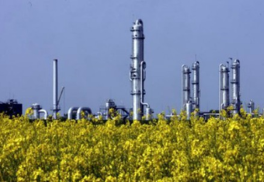Green Chemistry

Italy is at the forefront of Green Chemistry industry, so as to have created the first integrated biorefineries in the World.
In the context of the chemical from biomass, and in analogy to the concept of refining in the petrochemical industry, the concept of biorefineries has been defined , which is a production system that gets fuel and other fine chemicals from raw materials (biomass), alternatives to fossil fuels.
The purpose of the biorefinery is to produce more types of products, using renewable resources as carbon sources and using chemical, biological and biotechnological processes in synergy with the conventional chemical processes.
Biorefineries adopt cascade processes, based on single or multiple biomass matixes as raw material, from which to obtain products with added value as high as possible, obtaining energy from the materials at the end of life and looking forward to their re-use as inputs for biomass (soil or fertilizers), taking into account the environmental mitigation practices, in particular with regard to greenhouse gas emissions and the concept of "zero waste" and the efficient use of resources.
The refining process is not necessarily concentrated in a single Plant, but can occur in a supply chain context, with relocation of production sites in local areas, as a function of access to sources of supply of raw materials and of the impact on the territory. This may involve intermediate treatment stages (selection, concentration, densification), more localized areas of origin, making it possible to qualify the biomasses, and then send them to the subsequent steps of transport and transformation.
The relocation allows to better manage the sustainability of the production system, especially as regards the access to supplies of primary biomass, on which the cost and environmental impact of transport do not have secondary importance.
Considering the products already widely come into use and other more recently introduced, among the chemical derived from biomass, we can mention:
- fuels
- lubricants
- solvents
- polymers
- plastics
- filler
- Basic chemicals (building blocks)
- surfactants and detergents
- Pharmaceuticals, cosmetics, agrochemicals, and other fine chemicals